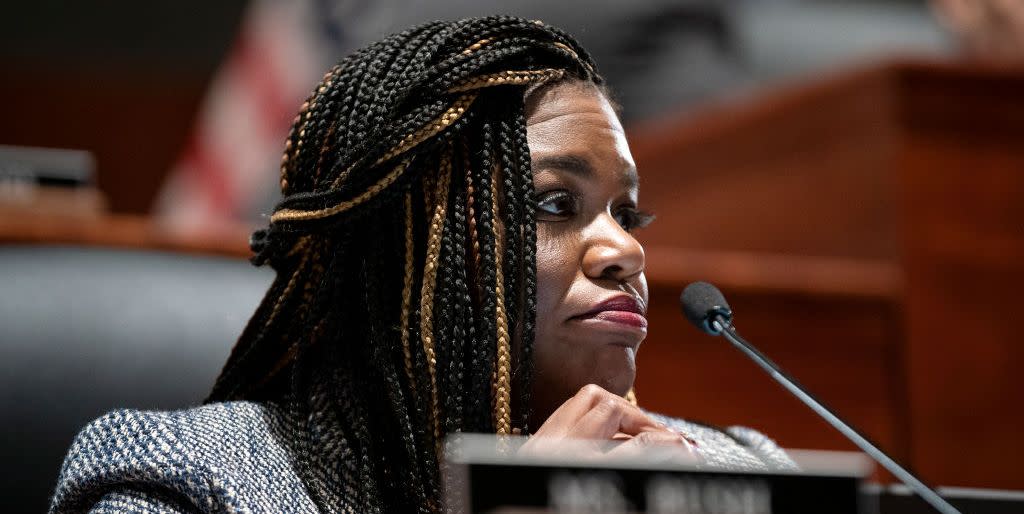House Passes CROWN Act, Banning Race-Based Hair Discrimination at Work

"Hearst Magazines and Yahoo may earn commission or revenue on some items through the links below."
In a huge step for the Black community, the House of Representatives Friday passed a bill that would ban race-based hair discrimination at work, federal programs, housing programs, and public accommodations.
The CROWN Act, which stands for Creating a Respectful and Open World for Natural Hair, "prohibits discrimination based on a person's hair texture or hairstyle if that style or texture is commonly associated with a particular race or national origin," per Congress. The Democratic-led House voted 235–189 to pass bill, and it will now head to the Senate for a vote.
"Persons shall not be deprived of equal rights under the law and shall not be subjected to prohibited practices based on their hair texture or style," the bill summary says.
For too long, Black women and men have felt pressured to change their hairstyles to avoid being discriminated against in professional settings. A 2019 study by the JOY Collective, titled "The CROWN Research Study," found that Black women were 80 percent more likely to feel the need to change their hairstyles to fit in at the office.
Black culture has always celebrated expression through hair, and while it is evidently not a reflection of intelligence or competence, a 2020 Duke University study found that Black women with natural hairstyles—such as braids, locs, Afros, twists, Bantu knots, and cornrows—were perceived to be less professional. They were also less likely to be recommended for job interviews over white applicants or Black applicants with straightened hair.
The Biden administration said in a statement this week that it "strongly supports" the CROWN Act and "looks forward to working with the Congress to enact this legislation and ensure that it is effectively implemented."
"The President believes that no person should be denied the ability to obtain a job, succeed in school or the workplace, secure housing, or otherwise exercise their rights based on a hair texture or hair style," the statement read.
Congresswomen on the House floor Friday praised the bill and spoke about their own experiences as Black women in a majority-white profession.
"As a Black woman who loves my braids, I know what it's like to feel isolated because of how I wear my hair," Democratic Rep. Cori Bush, of Missouri, said. "This is the last time we say no more to Black people being demeaned and discriminated against for the same hairstyles that corporations profit from. No more to Black people being made to feel like we have cut our locs just to get a job. This is the last time we say no more to Black people being made to feel like we have to straighten our hair to be deemed professional."
"I rise today on the floor of the House of Representatives, the People's House, to declare that Black girls, with our braids, locs, Afros, all forms of natural hairstyles, and, yes, even our smooth, alopecian bald heads, belong everywhere," Rep. Ayanna Pressley, of Massachusetts, said. "For too long, Black girls have been discriminated against and criminalized for the hair that grows on our heads and the way we move through and show up in this world."
California was the first state to pass the CROWN Act in 2019, and various other states have implemented similar laws since. New York, New Jersey, Virginia, Washington, Connecticut, Maryland, Colorado, New Mexico, Delaware, Nebraska, Illinois, and Massachusetts have all prohibited discrimination based on hair texture and style.
"Hair discrimination is rooted in systemic racism, and its purpose is to preserve white spaces," the National Association for the Advancement of Colored People said on its website. "Policies that prohibit natural hairstyles, like afros, braids, bantu knots, and locs, have been used to justify the removal of Black children from classrooms, and Black adults from their employment."
You Might Also Like

